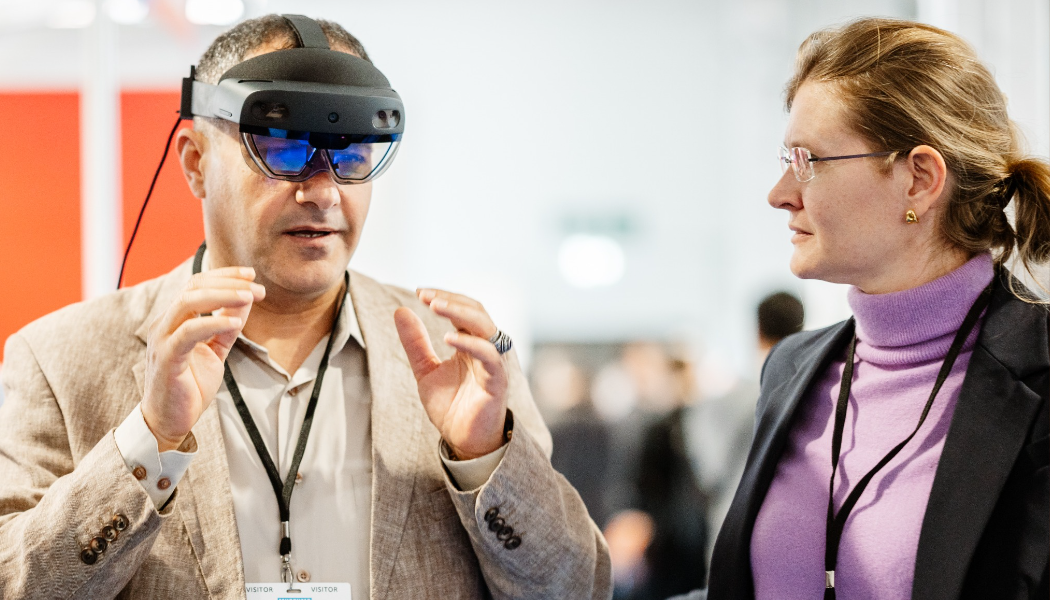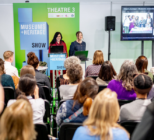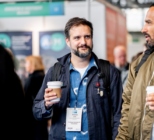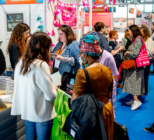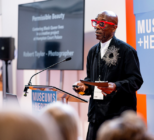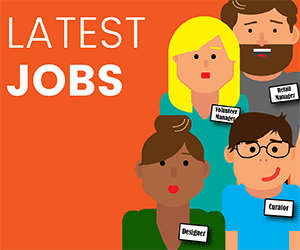Visitors today returned to the second and final day of the Museums + Heritage Show 2023 for more session, networking, and demonstrations at Olympia in London.
Questions of class
Today’s sessions included a primer on the research being carried out by Dr Serena Lervolino, Lecturer in Arts & Cultural Management, King’s College London and Dr. Domenico Sergi, Senior Curator, Museum of London.
The pair discussed a small-scale research and collecting project, ‘Inequalities, Class and the Pandemic’, taken during the height of the Covid pandemic and part of the Curating London programme, funded by Arts Council England.
The project, collaboratively carried out by the Museum of London and King’s College London, investigated how museums can engage more meaningfully with working-class lived experiences.
The session discussed how and why class should be a priority in debates and practice around diversity and inequality, and shared the experiences collected in the research from participants, all ‘essential workers’ in working-class jobs.
Dr Lervolino explained that during their research, “interviewees didn’t identify as working class… and they didn’t overtly use the identification”, adding that ‘working class’ identity was not universally adopted by those in the category.
Amazing to talk about class @MandHShow and see my old friend and colleague @DomSergi4 – great talk guys! pic.twitter.com/FkjHUg4Gqb
— Rhiannon Green (@RhiannonEGreen) May 11, 2023
Some groups would be “keen” to see their group represented, said Lervolino, but Sergi added that there is potential for stigma, and asked “can museums destigmatise groups when focussing on that?”
Asked by the Chair of the session if there was potential for the new boom in digital tools and channels to be a force for democratisation, Lervolino pointed to the inequalities created by families from poorer backgrounds who have students working from home as an example.
Sergi added: “Generally speaking there is a big issue in assuming that technology is going to solve all issues,” he said, adding that inequalities are at risk of being mirrored and built into new technological solutions used in museums, for example.
More on the research:
Methods for museums to explore class differences explored in new research
Top tips for making recruitment more inclusive
How can museums and galleries make their employment process more accessible for people living with neurodiversity? Leeds Museums and Galleries have worked with people with neurodivergence and lived experience of disability through museum and arts specific employment programmes for a number of years.
In this session, Carl Newbould, Learning and Access Officer at Careers for All; Kate Fellows, Head of Learning and Access at Leeds Museums and Galleries, and Jessica Rymill at Luminate Education shared their learnings.
Newbould and Fellows explained the creation of ‘Careers for All’ following a project to make its next recruitment process more accessible. It was a small project which turned into a long-running programme, now being adopted by Leeds City Council beyond the museums and galleries sector.
Following extensive focus groups with both young people, teachers, and tutors, an approach to more inclusive recruitment was adopted and implemented ahead of the recruitment process.
This included:
- A pre-application Zoom call in which applicants could meet staff
- Applicants having contact ahead of a job interview to ask queries on access
- Interview panels kept to no more than two members
- Unconscious bias training for staff involved in recruitment
- Interview questions provided to interviewees a week in advance
- Avoiding two or three-part questions
- Permitting notes to be brought in to the interview
Newbould said that notes had been considered by some in the focus group to be “cheating”, but wanted to give applicants the confidence that notes were encouraged and allowed.
He also detailed the creation of an easy-to-ready, step-by-step document with an explanation of the interview process, including images of the interview’s location and headshots of those involved in the process.
Newbould said: “Every applicant we met had printed off [the guide] – both those who were neurodivergent and those who were not”. The recruitment process also saw a higher proportion of applicants than average select the box signalling that they were eligible for theDisability Confident Employer scheme, after it was made clear that selecting this box would not lead to applicants being penalised.
Fellows said that the conclusion of the process was “a staff member who did a fantastic job over 30 days, who maybe would not have had the opportunity to get through in years gone by”.
The work on accessible recruitment has since led Newbould to become leader of a panel which discusses inclusivity and recruitment at Leeds City Council.
Fellows said: “It’s about people feeling that they can bring their whole selves to work”, and that the museums and heritage sector could embrace a “sense of care” which has been built into the Careers For All project.
“It is not a quick fix”, said Fellows,” it has been five or six years of work and we are still not where we want to be yet”.
In February Newbould wrote about his experience creating a series of ASMR workshops for Advisor.
The importance of visitor services
Richard Neville, formerly Venue and Event Operations Management for ABBA Voyage and now Deputy General Manager of the BBC Earth Experience, shared his learnings from work in major attractions.
Neville, who also worked at Tate Britain and provided training before its reopening, explained his approach to building and developing visitor services teams in the live events industry and how these ideas and themes can be shared into the museums and heritage sector.
Great morning @MandHShow with @rubbercheese @TheChiefCheese @MrTicketeer talking website/sales journey followed by @djnev giving great insight into the visitor experience design @ABBAVoyage (which absolutely inspired my awards ceremony outfit), &snuck to @bbc_earth_exp earlier 🌍 pic.twitter.com/4vVEgt7tb6
— AbbigailOllive (@AbbigailWright) May 11, 2023
He said: “People come to see your show or exhibition over anything else, and have invested time and energy to get tickets. That investment I find really important. The least we can do is give them a warm welcome and the ease of a visitor experience which is amazing”.
Referencing the ABBA Voyage experience, he said: “The show is so good, the expectation so massive, that I really wanted to mirror the experience of the actual show”.
Part of the process of better understanding the ABBA Voyage visitors included the creation of visitor personas.
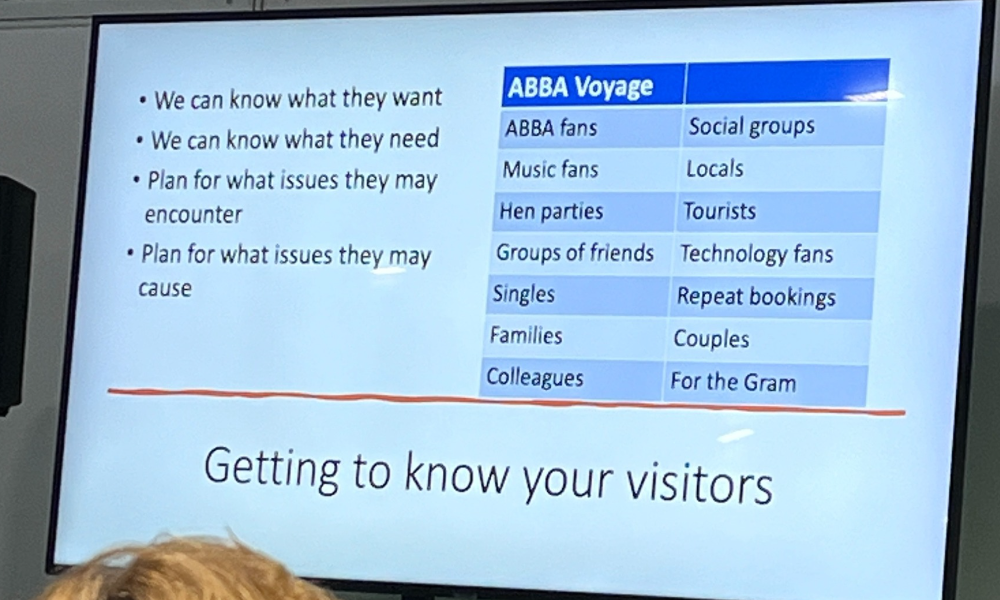
Neville suggested carrying out a similar ‘visitor experience audit’, creating sub-categories of visitor types, which allow for the creation of more tailored solutions.
Neville also suggested exploring not only what visitors want and need, but to focus as much on predicting the issues which visitors may create.
He said: “Everyone remembers great service, but everyone remembers bad service. Those experiences that you get can really shape your overall experience.
The creation of a visitor experience is the first step in successful visitor experiences, he said, but “the primary thing about visitor services is to just talk to visitors and find out how they are doing”.
All sessions have been filmed and will be available via the Museums + Heritage Show website in the coming weeks, free to those who visited. Those not attending the show can purchase access to the entire archive of this year’s talks via the Museum + Heritage Show website.

